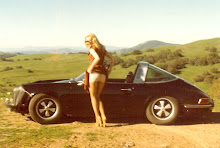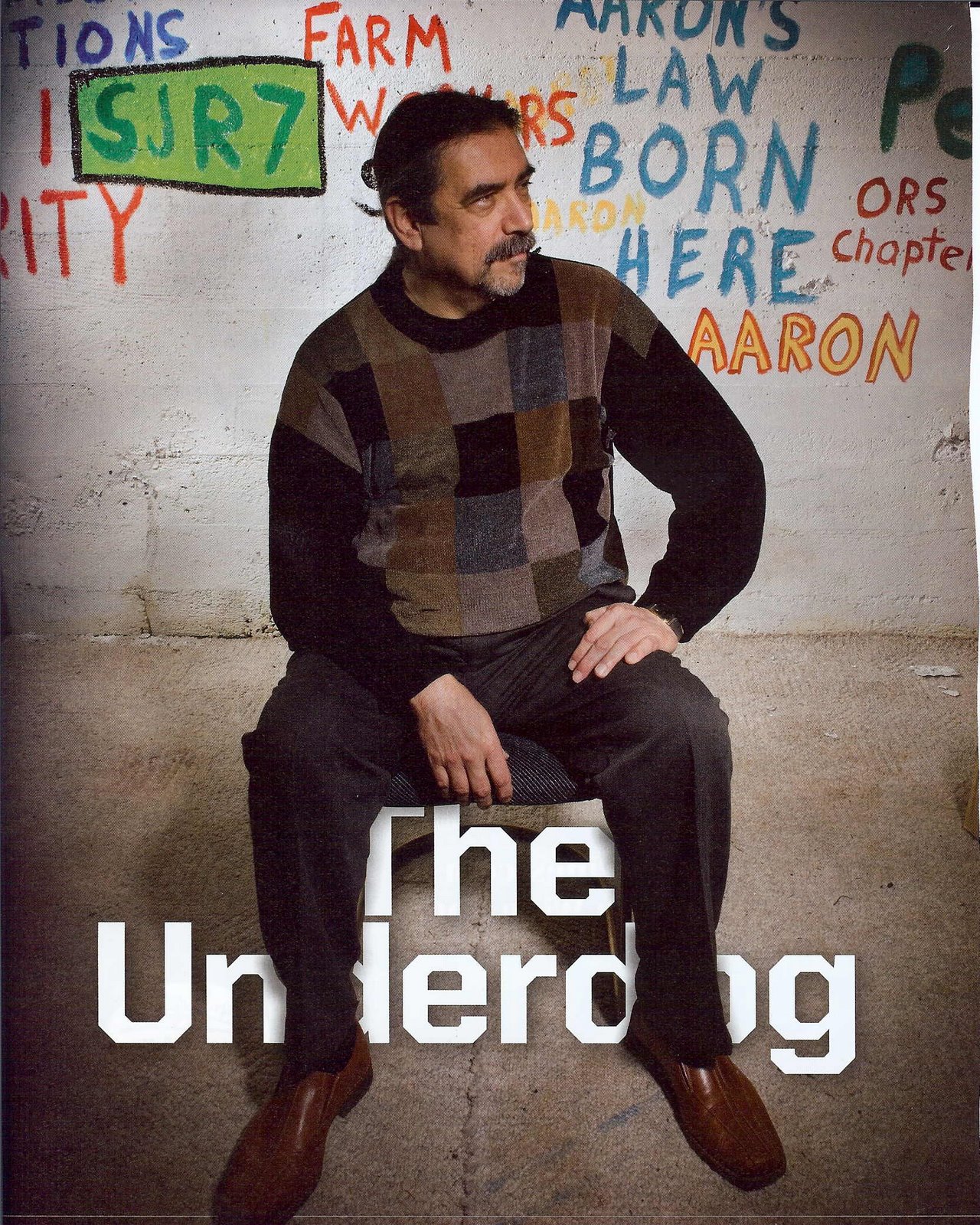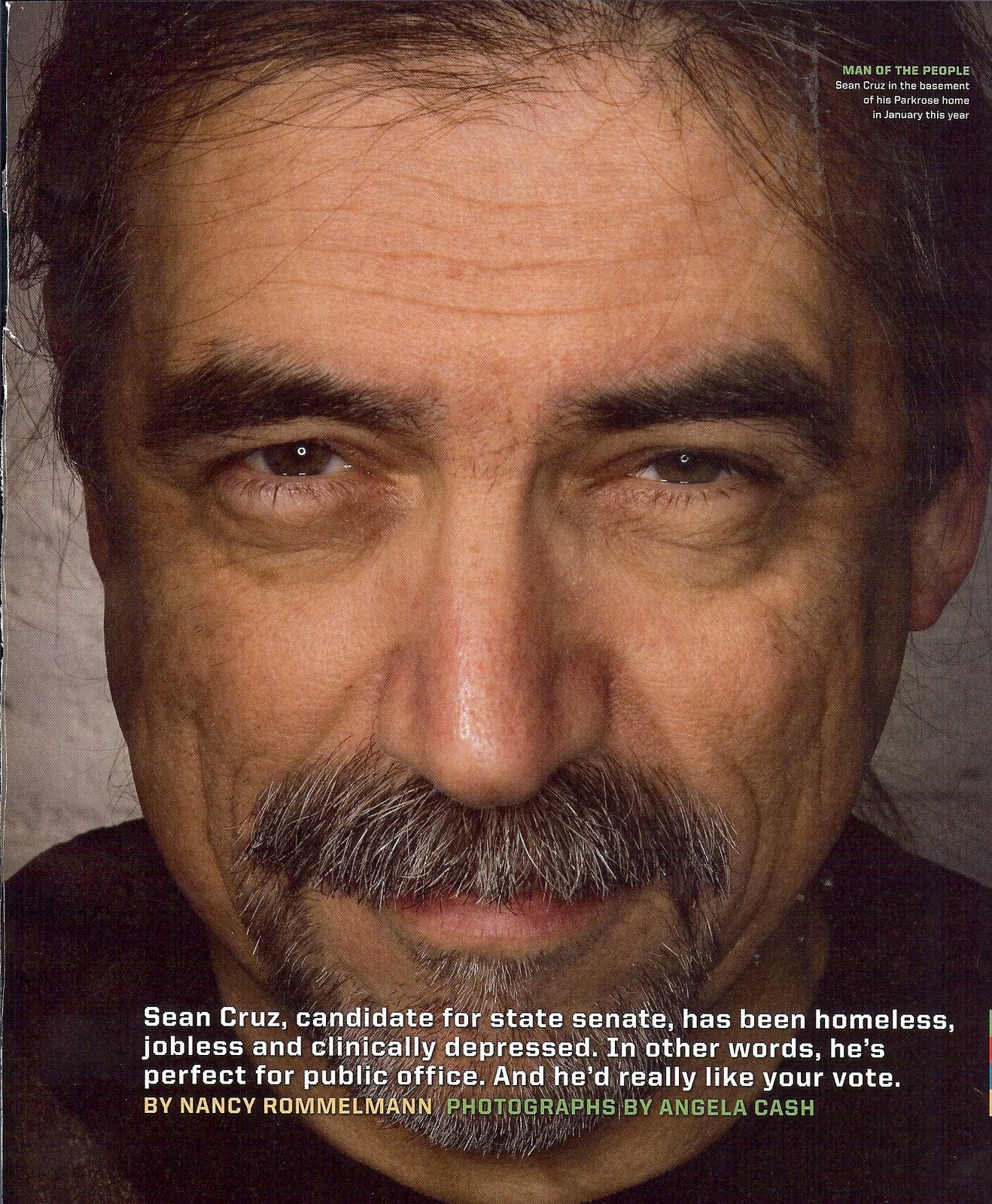By Sean Aaron Cruz
July 14, 2012
Portland, Oregon—
I grew up in the sweet spot of middle class America.
In terms of geography, in a small town county seat on the
edge of the Central Valley amid fruit orchards and vast
fields of cucumbers and tomatoes, less than an hour away equidistant from the
cosmopolitan wonders of San Francisco
by either the Bay or Golden Gate Bridges.
While the fishery within San Francisco Bay was already dying,
there was still enough fish in the nearby Pacific Ocean to sustain a real
working fleet and Fisherman’s Wharf was worthy of its name, boasting a truly world
class open-air fish market. You had to see it, to smell it, to touch it, to
know how special this was, how sweet.
In terms of weather, one could hardly do better, anywhere,
than Fairfield California
(except for the prevailing winds that were reliable enough for the USAF to want
to build Travis AFB there east of the town). Those winds would never turn into
hurricanes or tornadoes, but could surely drive a person to the brink of
low-intensity insanity.
In terms of education, in a time when California set the standard,
a truly world-class system from k-12 through an array of community college and
university options, before the rise of Reaganism and the passage of Proposition
13 which together eviscerated the system. It was a time when the nation
invested in educating its young and valued its professional teaching infrastructure.
I played trumpet in school bands from the fourth grade on,
and every school in the state had a band. A student never doubted that there
would be band next year, nor art nor drama nor debate club, and so on….
In terms of American history, the UC Berkeley campus and the
San Francisco Bay Area were Sweet-Spot centers of the Free Speech and Civil
Rights movements, and the generation ahead of me did much to change the
framework of American politics for generations to follow.
I came of age in the Summer of Love, the Sweet Spot of
American sexuality, a time when the Pill was in common use and HIV and AIDS
infections yet unknown, and before the epidemic of hard drugs, cocaine in
particular, ended the glory days of Woodstock
and the Haight-Ashbury.
You had to be there, I think, to know how sweet this time
was. We will never see those days again.
In terms of music and culture, there was the Fillmore and
the legendary Bill Graham, and there was the Avalon Ballroom and all of those
incredible game-changing bands, all in the context of the aforementioned sweet
spot of American sexuality and the political and social struggles of the time.
The long deadly wars in Viet Nam and across Southeast Asia,
the involuntary draft, Nixon and Reagan in the White House,and the ongoing
struggle to gain basic civil rights across the nation were the obverse of the
Sweet Spot, the bloody, hate-mongering incarnations of selfishness and evil,
but there was plenty to be happy about.
To drive your girl into San Francisco with the top down, the
windows open, pioneering album-oriented FM radio providing the sound track
(sometimes with an LSD boost), an infinite array of adventures lay ahead, and
it was truly a Very Sweet Spot to be in….
I was blessed to grow up in a Sweet Spot of family values
also, having parents who cared for my brother Dana and I more than anything
else in the world, who always ended a note or letter to us with the same word,
“Love”, and who very nearly always ended conversations the same way, with the
words “I love you.”
Our Dad, John Paul Cruz, died suddenly of a heart attack in July
1975 at the age of 52. He had suffered a brutal chest injury a few years prior
in a high-speed collision while on duty as a patrol officer with the Solano
County Sheriff’s Office that cost him his career, and afterwards a series of
heart attacks. Surgery techniques that could have saved his life did not become
available for another couple of decades.
My father’s abrupt death ended the Sweet Spot for me, wiped
the smile off of my face for a long, long time.
I lost interest in being a musician that summer, sold my
guitars and amps, kept only the beat-up trumpet my folks bought for me in the
fourth grade and the trumpet I used to gig with, and would not play in a band
again or in public for more than twenty years.
I lost my anchor when my father passed.
Within a few months of his death, I had transitioned from
pot-smoking, wine-drinking happy-go-lucky psychedelic University student Chicano
hippie musician who had only occasionally encountered cocaine, to
self-medicating self-destructive Chicano-looking-for-adventure-in-the-course-of-maintaining-a-habit-of-coke-and-hard-liquor.
I lost my taste for wine. Wine would not get me where I
wanted to be fast enough, and scoring cocaine in high-risk situations replaced
the adrenaline rush I used to get from performing in public.
I came to hate the person I had become, and dealt with that
tension by overwhelming it with cognac, tequila and Miami Vice-level cocaine
usage and related risky behaviors. This did not make matters better in any way.
There were many times that I thought I might be dying from an overdose.
This period came to an end when my wife and I became parents
with our first born child in 1978, both of us still severely addicted to
cocaine and the fast lifestyle that came with it, but determined to be real
parents.
It took a couple of years for us to clean up permanently, a
process of leaving behind probably 90% of our friends and all of our
acquaintances, but that we did do, and our children never experienced any part
of the dependency years.
My parents were fabulous parenting role models, and my
children and I always ended our conversations with the words “I love you.”
My mom wrote about this years later, after my four children
had disappeared into Utah in a
Mormon abduction, about how often she had heard my children and I speak those
words, and how often she would see them in the notes and letters and cards we
wrote to each other.
Mom had herself grown up in a household where those words
were rarely used, she wrote. Her own mother had died of pneumonia when she was
just twelve, and her father was abusive, a man whose death she did not mourn. I
have long ago forgotten his name.
I was able to recover my son Aaron from the Mormon abduction
in 2003. He was the only one of my four children that I was able to make any
contact with after their disappearance into theocratic Utah,
and that only a few times.
The Mormons were very effective in preventing contact and
communication between my children and I, and claimed in all sorts of court
documents, as I fought for contact through four jurisdictions in three states,
that my children and I had never had any real relationships.
Most of the letters I mailed to my children in the wake of
their abduction were intercepted by Mormons both in Utah
and by Evelyn Taylor, the Mormon Relief Society President in Hillsboro
Oregon. Although my children were abducted
to Utah from their home in Hillsboro,
mail addressed to them was forwarded not to Utah,
but to Evelyn Taylor’s home.
Checks my mother and I sent to my children went uncashed and
unreturned.
And the Mormons did not allow a single letter, note or card
from my children to leave Utah.
This is how a Mormon shunning works. All contact is
forbidden.
But Aaron and I always ended our conversations with the same
words, “I love you”, and “I love you too.”
Our notes and letters to each other also ended with the word
“love”.
That is the story of this note below, this exchange of love
notes between Aaron and I in 2003, on a day when I left early for my job as
Senator Avel Gordly’s chief of staff during the 2003 legislative session.
It began with his admonition to his friends Abby and Justin
(who were both also badly in need of rescue), “Don’t throw away this juice.”
I added a $20 bill with the words “Love, Dad.”
Aaron wrote his reply, “Thank you, Love, Aaron.”
Later, I attached our mutual love note to the front of the
refrigerator with two “Kids Need Both Parents” stickers, where it remains
today.







No comments:
Post a Comment